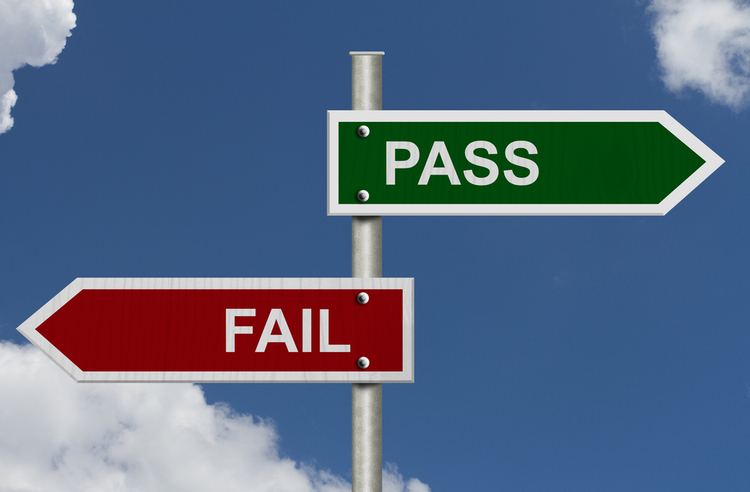These factors help predict whether a law grad will pass the bar on the first or second try, study says

Image from Shutterstock.
A survey of law graduates who took the New York bar exam in the years before the COVID-19 pandemic has identified six factors that contribute to success.
The first factor—no surprise—is that bar passage increased as the number of weekly study hours increased.
Law.com has the story; a May 19 press release is here.
“Although it seems simple enough to put in more study time, doing so can prove difficult for candidates with other obligations, such as a job or a family,” according to the executive summary of the report, Analyzing First-Time Bar Exam Passage on the UBE in New York State.
The study found that first-time test-takers who had larger household sizes or higher employment hours while prepping for the exam were less likely to pass on the first try. But employment during bar prep wasn’t a significant influence for second-time test-takers, perhaps because they learned from their first bar exam experience, according to the report executive summary.
The New York State Board of Law Examiners commissioned the study to learn what kind of demographic, academic and behavioral factors are associated with bar exam passage on the first or second try. The study, conducted by the nonprofit AccessLex Institute, was based on focus groups, as well as 7,000 survey responses from New York bar candidates who took the uniform bar exam in July 2016, February 2017, July 2017 and February 2018.
Here are the other five factors:
• Studying strategically is critical for bar exam success. In focus groups, second-time candidates said they made better use of their study time by tailoring their bar prep activities to fit their learning styles and address specific areas where improvement was needed.
• Time management is key. First- and second-time test-takers who ran out of time on the multistate bar exam were less likely to pass. Also, first-time candidates who reported running out of time on the multistate essay exam were less likely to pass. A few focus group participants said they wrote as much as possible on the earlier questions to earn more points, leaving inadequate time for later questions.
• Law journal participation during law school was associated with bar passage, even after accounting for factors such as a Law School Admission Test score and hours spent studying. Also, candidates who reported greater satisfaction with their law school were more likely to pass.
• Only a few law school courses—corporations and evidence—were associated with bar passage on the first try. Evidence was also associated with bar passage on the second try.
• Law school debt and unemployment after the bar exam were negatively associated with first-time bar passage. Those factors may be having an influence because of bar candidates’ anxiety about finding a job and starting loan repayment.



